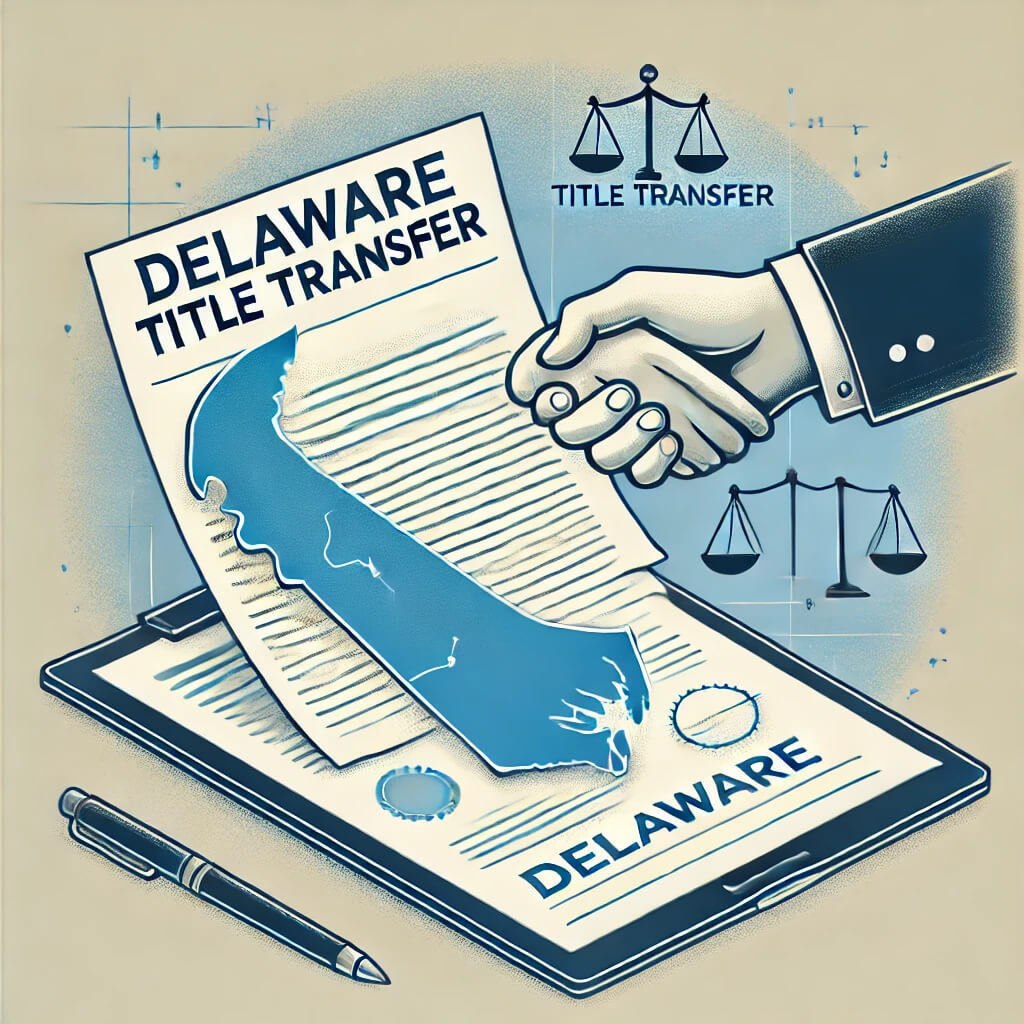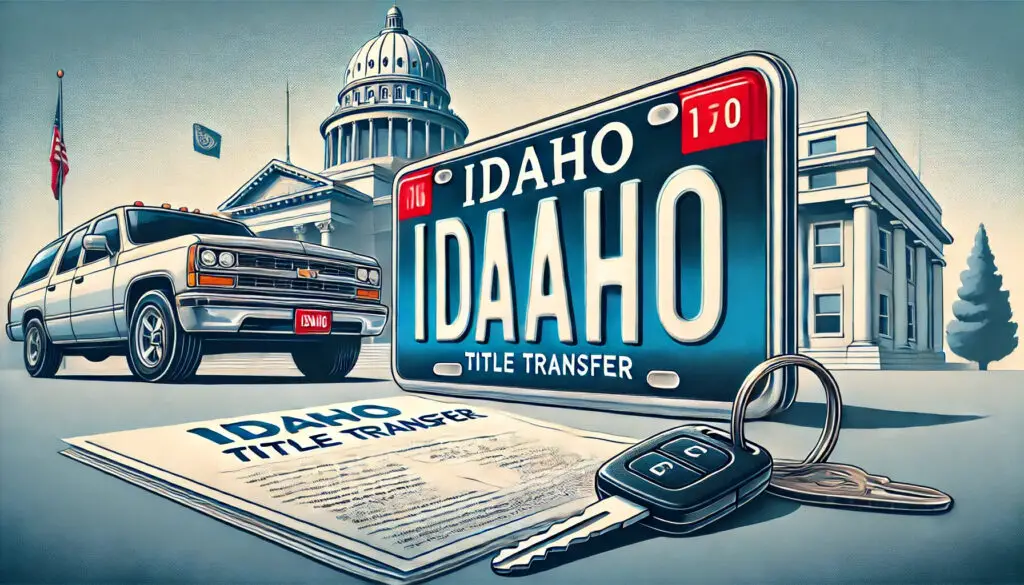I. Introduction
In the heartland of America, where the wind sweeps across the plains and the open road beckons, understanding the intricacies of car title transfers is of paramount importance. Whether you’re buying, selling, or trading a vehicle, this comprehensive guide to car title transfers in Oklahoma will be your trusted companion on this journey.
II. What is a Car Title Transfer?
A car title transfer is the legal process of transferring ownership of a vehicle from one party to another. This seemingly mundane task holds immense significance when it comes to safeguarding your interests. Whether you’re the seller or buyer, a successful car title transfer ensures that the transaction is legitimate and legally binding.
III. When Do I Need to Transfer a Car Title in Oklahoma?
The 15-Day Rule
In the state of Oklahoma, the law unequivocally dictates that the transfer of a car title must be executed within a tight timeframe of 15 days from the date of sale or acquisition of a vehicle. This isn’t a mere bureaucratic formality; it’s a profoundly pivotal measure instituted to safeguard the rights and responsibilities vested in you as a vehicle owner.
This rule is designed to serve multiple crucial purposes:
- Legal Compliance: First and foremost, adhering to the 15-day rule is a matter of strict legal compliance. Failure to initiate the title transfer within this window could lead to potential legal consequences.
- Ownership Verification: It ensures that the rightful owner of the vehicle is officially recognized by the state. For buyers, this step is instrumental in establishing their legal ownership of the vehicle, shielding them from any liabilities associated with it.
- Preventing Late Fees: Beyond the legal aspect, there’s a practical and financial reason to complete the transfer promptly. Failure to do so may result in incurring late fees, which can add unnecessary financial strain to the transaction.
Timely Title Transfers
Timely title transfers are not solely a matter of regulatory compliance; they are a proactive stance that can save you from unforeseen complications and financial burdens. Here’s why they matter:
- Legal Ownership: For buyers, a swift title transfer is a formal declaration of their legal ownership of the vehicle. This documentation provides the buyer with indisputable evidence of their rights to the vehicle.
- Liability Protection: Transferring the title promptly also serves as a crucial form of liability protection. Until the title is transferred, the seller remains legally responsible for the vehicle. In the unfortunate event of accidents, tickets, or other issues involving the vehicle, the seller could still be held accountable. Timely title transfer shields the buyer from such liabilities.
- Avoiding Late Fees: As previously mentioned, delaying the title transfer can lead to late fees, an unnecessary financial burden that can be easily avoided by adhering to the 15-day rule.
Exceptions and Special Cases
While the 15-day rule is a standard practice, the world of vehicle transactions is rarely one-size-fits-all. In recognition of this reality, Oklahoma’s regulations do provide for exceptions and special cases.
One common scenario is when dealing with inherited vehicles or situations involving legal representatives. In such instances, the process may indeed vary from the standard procedure. It’s paramount to comprehend these exceptions thoroughly to ensure a seamless and lawful title transfer.
For inherited vehicles, the executor of the estate or the legal heir may need to provide additional documentation, such as a copy of the will, the death certificate of the previous owner, and a court order establishing their authority to transfer the title.
When legal representatives are involved, it might necessitate specific forms and affidavits to demonstrate their capacity to act on behalf of the owner. Understanding these exceptions is fundamental to navigating the process smoothly and legally.
In essence, while the 15-day rule serves as the bedrock of title transfer regulations in Oklahoma, the state recognizes the diverse nature of vehicle transactions and provides provisions to accommodate unique situations, ensuring fairness and legality in all cases.
IV. Essential Information for Car Title Transfer
To successfully navigate the intricate process of transferring a car title in Oklahoma, meticulous attention to detail is paramount. Here’s a comprehensive breakdown of the essential information you’ll need:
1. Seller’s Name and Address: This foundational piece of information serves as the keystone for documenting the current owner of the vehicle. It’s a critical component in ensuring a seamless transition of ownership from the seller to the buyer. Accurate recording of the seller’s name and address is not just a matter of compliance; it’s the bedrock of legality in the transaction.
2. Buyer’s Name and Address: Similarly, precise and up-to-date information regarding the buyer is equally indispensable. The buyer’s name and address are the building blocks upon which legal ownership is established. This data not only confirms the rightful owner but also plays a pivotal role in preventing disputes that may arise in the future.
3. Vehicle’s VIN (Vehicle Identification Number): The VIN is the automotive equivalent of a fingerprint—it is utterly unique to each vehicle. Accurately recording the VIN is of paramount importance, as it serves as the ultimate identifier for the vehicle. It ensures that the vehicle being bought or sold is the same as the one described in the paperwork, eliminating the possibility of fraud or mistaken identity.
4. Odometer Reading: The precise recording of the vehicle’s mileage, or odometer reading, is a fundamental aspect of the title transfer process. This seemingly simple number holds significant implications. It helps determine the vehicle’s value, which can be pivotal in various situations, such as assessing taxes or insurance premiums. Moreover, federal law mandates the disclosure of accurate odometer readings to prevent fraud and misrepresentation.
5. Date of Sale: The date of sale is not just a logistical detail; it establishes the timeline for adhering to the 15-day rule mandated by Oklahoma law. This date serves as the starting point for the countdown within which the title transfer must be completed. Failing to record the date accurately can lead to complications and potential late fees.
6. Proof of Insurance: Lastly, the requirement for proof of insurance is rooted in protecting the interests of both the buyer and seller. Insurance provides a safety net in case of unforeseen events post-sale. It ensures that both parties have some level of protection during the transition of ownership, which can be particularly crucial in cases where disputes or accidents occur shortly after the sale.
Understanding the pivotal role of each of these requirements is not merely a matter of compliance but a strategic move to guarantee a smooth and legally sound car title transfer process in the state of Oklahoma. With these elements in place, you’ll be well-prepared to navigate the process with confidence and clarity.
V. How Do I Transfer a Car Title in Oklahoma?
A. In-Person Title Transfer
When opting for an in-person car title transfer in Oklahoma, you can expect a streamlined and efficient process. Here are the steps and procedures to follow:
- Visit a Local Tag Agency or Oklahoma Tax Commission Office: Your journey begins by locating a nearby local tag agency or an Oklahoma Tax Commission office. These are the designated locations where car title transfers are processed. Choose a location that is convenient for you.
- Complete the Required Forms: To initiate the title transfer, you’ll need to complete specific forms. The primary document you’ll need is the “Application for Oklahoma Certificate of Title for a Vehicle.” This form is the cornerstone of the process, capturing essential details about the vehicle, buyer, and seller.
- Provide All Necessary Documents and Payment for Fees: In addition to the application form, you’ll need to provide all the required documents, such as the current car title, proof of insurance, odometer disclosure statement, and any other relevant paperwork. Be sure to bring valid identification as well. Additionally, you’ll need to make the necessary payments for the title transfer fees and any applicable taxes.
- Receive Your New Title Certificate: Once all the paperwork is submitted, and the fees are paid, the tag agency or Oklahoma Tax Commission office will process your request. If everything is in order, you’ll be issued a new title certificate. This certificate serves as legal proof of your ownership of the vehicle.
In-person title transfers offer the distinct advantage of immediate processing and the availability of face-to-face assistance. You can have your questions answered promptly, and any potential issues can be addressed on the spot.
B. Online Title Transfer
For those seeking a more convenient and efficient option, online title transfers through the Oklahoma Tax Commission website are a viable choice. Here’s how to complete an online title transfer:
- Visit the Oklahoma Tax Commission Website: Start by visiting the official Oklahoma Tax Commission website. This can be done from the comfort of your home, making it a convenient option for many.
- Follow the Online Instructions for Title Transfer: The website will provide clear and user-friendly instructions for completing the title transfer online. You’ll be guided through the process step by step.
- Submit the Required Information and Payment Electronically: Provide all the necessary information accurately as prompted by the online system. This will include details about the vehicle, buyer, seller, and any supporting documentation. Additionally, you’ll need to make electronic payments for the title transfer fees and applicable taxes.
- Receive Your New Title Certificate by Mail: Once your online submission is processed and approved, you can expect to receive your new title certificate by mail. This certificate serves as the legal proof of your ownership of the vehicle.
Online transfers offer ease and efficiency, eliminating the need for physical visits and long wait times. It’s a modern and user-friendly method that caters to the digital age, making the title transfer process more accessible and convenient.
Choose the method that aligns with your preferences and needs, whether it’s the immediate assistance of an in-person transfer or the convenience of an online transfer from the comfort of your home.
VI. Fees for Transferring a Car Title in Oklahoma
Understanding the fees associated with car title transfers is not only prudent but also crucial for effective budgeting. Here’s a comprehensive breakdown of the various costs involved:
1. Title Transfer Fee: The cornerstone of the fees associated with car title transfers in Oklahoma is the standard Title Transfer Fee. This fee is the mandatory charge for the official transfer of ownership from the seller to the buyer. It represents the formalization of the transaction and ensures that the new owner is duly recognized by the state.
2. Additional Costs: Beyond the fundamental Title Transfer Fee, there may be additional costs depending on the specific circumstances of the transaction. These additional costs can encompass:
- Sales Tax: In many cases, a sales tax is levied on the purchase price of the vehicle. The exact rate can vary based on the value of the vehicle and local tax regulations. It’s imperative to calculate and include this tax in your budget to avoid any surprises during the title transfer process.
- Late Fees: Promptness in title transfers is not just about compliance; it can also save you from incurring late fees. If the transfer is not completed within the 15-day window mandated by Oklahoma law, late fees may apply. These fees can escalate over time, so it’s vital to transfer the title promptly to avoid additional financial burdens.
- Lien Recording Fees: In cases where there is a lienholder involved, such as a financial institution that holds a security interest in the vehicle, there may be lien recording fees. These fees are associated with officially documenting the lienholder’s interest in the vehicle. While this is not a common scenario for every title transfer, it’s essential to be aware of it if it applies to your situation.
3. Comparing Fees: To ensure that you make the most cost-effective choice when it comes to title transfers, it’s advisable to compare the fees associated with in-person and online transfers. Each method may have different fee structures, and selecting the one that aligns with your budget and preferences is key.
By conducting a thorough evaluation of the fees involved and understanding the potential additional costs, you can navigate the title transfer process in Oklahoma with financial prudence. This knowledge empowers you to budget effectively and ensures that the transfer is completed without any unexpected financial hurdles.
VII. Additional Options and Considerations
Transferring by Mail
While in-person and online title transfers are the prevailing methods chosen by most individuals, it’s worth noting that you do have the option to transfer a car title by mail. However, this method presents specific considerations and potential risks that should be approached with caution.
The key points to bear in mind regarding transferring by mail are:
- Potential Delays: When documents are sent through traditional mail services, there is the inherent risk of delays. These delays could be caused by various factors, including postal service processing times or errors in the mailing process. Consequently, choosing this method might extend the duration of the title transfer, which can be a drawback if you need the process to be expedited.
- Loss of Documents: Another risk associated with transferring by mail is the possibility of documents getting lost in transit. This can result in significant complications, as essential paperwork may need to be duplicated and resubmitted. To mitigate this risk, it’s advisable to use secure and traceable mailing methods and keep copies of all documents sent.
Given these potential challenges, individuals opting for mail-based title transfers should exercise caution and ensure they allow ample time for the process, taking into account the uncertainties of postal services.
Out-of-State Transfers
Dealing with an out-of-state seller presents a unique set of circumstances that require special attention. In such situations, you should be aware of the “Affidavit for Transfer of Ownership Following Loss of Assigned Oklahoma Title,” commonly referred to as “Form 777.”
This form plays a pivotal role in streamlining the title transfer process when the assigned Oklahoma title is unavailable. It helps ensure that the transfer of ownership is legally valid and documented appropriately, even when the original title cannot be presented.
Understanding the nuances of this form and its usage is crucial when dealing with out-of-state sellers. It simplifies the process and ensures that you comply with the necessary legal requirements for the transfer to proceed smoothly.
Staying Informed
In the ever-evolving landscape of regulations and requirements, it’s imperative to remain informed throughout the car title transfer process. To stay updated, always check the official Oklahoma Tax Commission website for the latest information and any updates regarding title transfers.
Laws and regulations governing vehicle transactions can change, and it’s vital to be aware of any modifications that may impact the process. By staying informed, you can ensure that your title transfer adheres to the most current legal standards and guidelines.
In summary, while the choice between in-person, online, or mail-based title transfers depends on your specific circumstances, exercising caution and staying informed are universal principles that should guide your approach to a successful car title transfer in Oklahoma.
VIII. Frequently Asked Questions (FAQs)
What if I miss the 15-day transfer window?
If you happen to miss the critical 15-day transfer window mandated by Oklahoma law, it’s essential to be aware that this lapse may result in the imposition of late fees. These late fees can accumulate over time, potentially increasing the financial burden associated with the title transfer. To avoid these penalties and ensure a smooth transfer process, it’s strongly advisable to complete the title transfer promptly within the designated timeframe.
Can I transfer a title with an out-of-state seller?
Yes, it is indeed possible to transfer a car title when dealing with an out-of-state seller. However, this scenario requires additional documentation and adherence to specific procedures. To facilitate this process, you’ll typically need to utilize “Form 777,” officially known as the “Affidavit for Transfer of Ownership Following Loss of Assigned Oklahoma Title.” This form is a crucial tool in streamlining the transfer of ownership and ensuring its legal validity when the assigned Oklahoma title is not readily available.
Is it possible to expedite the title transfer process?
Yes, it is possible to expedite the title transfer process by opting for expedited services, although this convenience typically comes at an extra cost. By paying an additional fee, you can ensure a quicker turnaround for the title transfer. This can be advantageous in situations where time is of the essence or when you seek to complete the transfer with minimal delays.
What should I do if there are discrepancies in the paperwork?
Addressing any discrepancies in the paperwork is of paramount importance to prevent potential delays and legal complications. If you encounter any inconsistencies or errors in the documentation during the title transfer process, it’s crucial to take immediate action. This may involve consulting with the relevant authorities or entities involved in the transaction to rectify the discrepancies. Resolving these issues promptly helps maintain the integrity of the transfer and ensures that it proceeds without unnecessary obstacles.
IX. Conclusion
In this comprehensive guide, we’ve navigated the intricate process of car title transfers in Oklahoma, emphasizing the importance of timely and accurate transfers. Your journey as a vehicle owner, buyer, or seller begins with understanding these vital steps. Stay informed, follow the guidelines, and experience hassle-free car title transfers in the Sooner State.
X. The Value of a Smooth Car Title Transfer
A smooth car title transfer isn’t just about following legal requirements; it’s about ensuring peace of mind for both parties involved in the transaction. When the process is executed correctly, the seller can confidently relinquish their ownership, and the buyer can drive away knowing they legally own the vehicle. This level of certainty is invaluable and can help prevent disputes down the road.
XI. The Role of Proper Documentation
Proper documentation is the linchpin of a successful car title transfer. Each document serves a specific purpose in establishing the legality of the transaction. Whether it’s the Bill of Sale, Odometer Disclosure Statement, or the Application for Oklahoma Certificate of Title for a Vehicle, ensure that every form is completed accurately and honestly. Falsifying information can lead to severe consequences and legal repercussions.
XII. Simplifying Complex Situations
In some cases, car title transfers can become complex. Perhaps you’re dealing with a vehicle gifted from a family member or inherited through an estate. These situations may require additional documentation, such as an Affidavit of Heirship or a Power of Attorney. It’s crucial to understand the specific requirements for your unique circumstances, and seeking legal advice, if necessary, can be a wise choice.
XIII. Protecting Against Fraud
Car title fraud is a real concern, and it can have devastating financial and legal consequences. To protect against fraud, always verify the identity of the seller, double-check the VIN, and ensure that there are no liens or encumbrances on the vehicle. If something seems amiss, don’t proceed with the transfer until you’ve resolved any doubts.
XIV. The Importance of Transparency
Transparency is key when transferring a car title. Both parties must be honest about the vehicle’s condition, mileage, and any known issues. This transparency not only ensures a smooth transfer but also builds trust between the buyer and seller. It’s a practice that fosters a positive experience for all involved.
XV. DIY vs. Professional Assistance
While some individuals may opt for a DIY approach to car title transfers, others may prefer the peace of mind that comes with professional assistance. Tag agencies and legal experts can provide guidance, ensuring that all documents are in order and the process goes off without a hitch. The choice between DIY and professional help ultimately depends on your comfort level and the complexity of the transaction.
XVI. Conclusion: Your Road to a Successful Car Title Transfer
As we conclude this comprehensive guide to car title transfers in Oklahoma, it’s worth emphasizing that knowledge is your greatest asset in this process. The more you understand the requirements, forms, and potential pitfalls, the smoother your journey will be.
Remember, transferring a car title is not just a legal obligation; it’s a critical step in ensuring that your automotive endeavors in the Sooner State are backed by legality and peace of mind. Stay informed, follow the steps diligently, and may your car title transfers be as smooth as the roads of Oklahoma.













